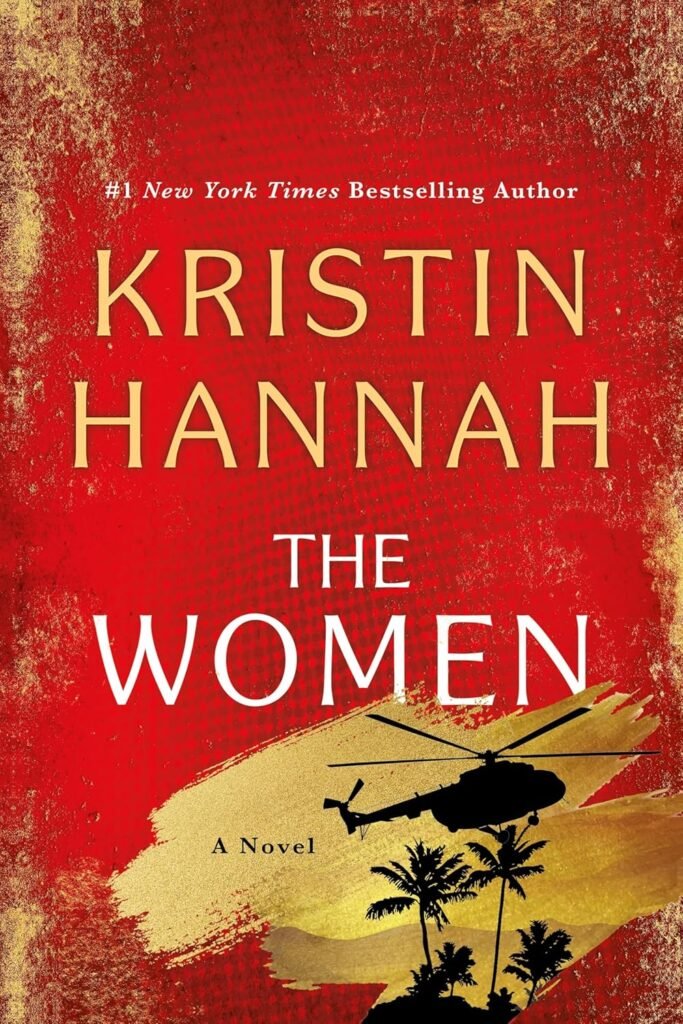Kristin Hannah’s The Women operates at the intersection of historical fiction and deeply moving narrative. In this novel, Hannah challenges the traditional narratives of war by placing women—specifically, Frances “Frankie” McGrath—on the front lines of the Vietnam War, offering readers a poignant account of heroism, sacrifice, and resilience. Drawing from exhaustive research and spotlighting the often-overlooked contributions of women, The Women is more than a novel; it’s a testament to courage under circumstances that defy comprehension.
Background and Setting
The Vietnam War, lasting from 1954 to 1975, remains a polarizing chapter in modern history. While many narratives have centered on the male soldiers who fought and died overseas, comparatively few have explored the roles women played during this tumultuous era. Kristin Hannah turns her lens to this neglected corner of history with The Women, underscoring the countless sacrifices made by nurses, physicians, and humanitarian workers.
The Historical Context of the Vietnam War
The Vietnam War was a geopolitical conflict born of Cold War tensions, pitting communist North Vietnam against South Vietnam and its ally, the United States. Amidst the political intricacies lay human stories, often shrouded in bloodshed and personal loss. For women like Frankie McGrath—trained as a nurse but transformed into a healer for broken bodies and shattered spirits—the war was as much a battlefield of the mind as the terrain littered with napalm scars.
Women weren’t passive bystanders but active participants. Over 11,000 women served in Vietnam, primarily as nurses in the Army Nurse Corps. Their daily reality involved unrelenting exposure to carnage, tending to the wounded where life and death collided. Hannah’s narrative shines a light on these experiences, peeling back layers of history often ignored.
 Photo by Võ Văn Tiến
Photo by Võ Văn Tiến
A Focus on Forgotten Stories
The societal dismissal of women’s contributions during the Vietnam War runs parallel to their struggles upon returning home. Many women were denied veteran status, excluded from the larger conversation about the war. The novel doesn’t shy away from depicting this injustice, portraying Frankie’s battles with societal neglect and personal trauma in devastating clarity. More than a critique of the past, it is a call to honor those whose sacrifices history has erased.
Character Development and Themes
One of The Women’s undeniable strengths lies in its multidimensional characters. Frankie McGrath serves as an anchor for a story that’s as much about survival as it is about reclamation—of self, of purpose, and of history.
Frances McGrath: A Memorable Heroine
Frankie could easily be the girl next door—a motivated nursing student inspired to enlist in the Army Nurse Corps by a brother’s idealistic patriotism. But war transforms her from a wide-eyed dreamer into someone who bears the emotional weight of lives lost. Her evolution mirrors the novel’s themes of resilience, exploring the unspoken truth of female veterans: survival often demands as much courage as battle.
In Frankie, Kristin Hannah has crafted a character who questions not just the morality of war but society’s resilience in addressing it. Frankie’s strength is defined not by whether she triumphs over trauma but by the way she continues despite it, refusing to let loss render her silent.
Exploring the Emotional Tapestry
The novel renders psychological depth through its exploration of PTSD, grief, and camaraderie. The relationships among nurses—Frankie included—act as lifelines. For while war destroys, it also forges indomitable human connections; pain shared is pain halved. The emotional battles Frankie faces are as compelling as the physical ones, full of searing memories and fleeting moments of relief found in unlikely friendships.
Hannah ensures that these moments of camaraderie never feel sentimental or forced. They’re rendered with visceral energy, underscoring war’s paradoxical ability to both destroy and unite.
Narrative Style and Authenticity
Beyond the characters, Kristin Hannah’s narrative style transforms The Women from historical recounting to immersive storytelling. Her prose is imbued with vivid imagery, emotional candor, and painstakingly researched details, bringing the Vietnam War to life through Frankie’s harrowing reality.
Kristin Hannah’s Research-Driven Storytelling
Hannah’s commitment to historical authenticity cannot be overstated. Drawing from firsthand accounts and archival research, she places readers in the stark landscape of a Vietnam field hospital: the screams of the wounded, antiseptic mingled with blood. Each scene feels like a window into true events, blurring the line between fiction and lived experience.
This fidelity to history enriches the story, transforming it from an engaging narrative into an indelible lesson about the human cost of conflict. Sources like Kristin Hannah’s official website elaborate on the extensive preparation undertaken to ensure accuracy in portraying the nurses’ lives and struggles.
Impactful Representation of Female Perspectives
What sets The Women apart is its deliberate focus on the female perspective. Frankie becomes a voice for the unnamed and unsupported, navigating a post-war America where men’s narratives dominate the stage. This portrayal combats the historical erasure of women’s stories, reaffirming their place in the tapestry of war.
Reception and Impact of the Novel
Like many of Kristin Hannah’s works, The Women has provoked praise and critique, generating dialogue about its narrative strengths and potential limitations.
Critical Praise for The Women
Critics have lauded the novel’s resonant themes and emotional honesty. Reviews from outlets like the New York Times highlight its success in capturing “women’s wartime experiences with moving conviction.” Frankie’s journey embodies the courage and despair so intrinsic to war narratives, making her unforgettable.
Constructive Criticisms
No novel is without fault, and The Women has been critiqued for certain predictabilities or what some readers perceive as an overly-romanticized depiction of relationships amid trauma. That said, these moments hardly detract from the overall impact, serving more as areas where readers’ preferences may diverge.
Conclusion
The Women stands as an evocative tribute to the unsung heroes of the Vietnam War—characters like Frances McGrath, whose courage reminds us of the overlooked truths war stories seldom tell. Kristin Hannah’s masterful balance of rigorous research and emotional depth offers a narrative that is as haunting as it is inspiring.
This book is essential reading for anyone interested in historical fiction and women’s overlooked contributions in pivotal moments of history. Much like the lotuses blooming amidst Vietnam’s scarred landscapes, The Women invites us to find beauty and resilience in the direst circumstances.

